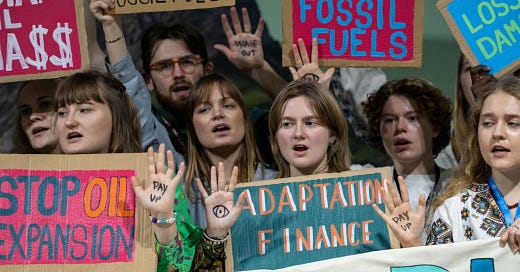Well, here we are again. COP29 has come and gone, and, unsurprisingly, it’s a failure. The draft deal on the table? A disaster. But honestly, isn’t it starting to feel like we’re stuck in a bad loop? Every year we build up hope, only to be left with empty promises and watered-down deals. And yet, it’s crucial we don’t let this pass without calling it wh…
© 2025 Aalia Mauro
Substack is the home for great culture




